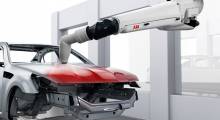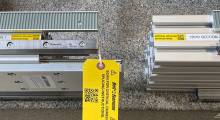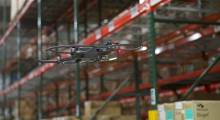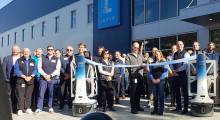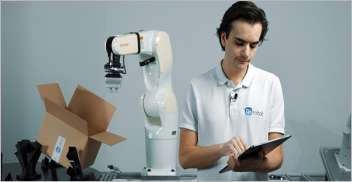Based in Sterling Heights, Mich., Fitzpatrick Manufacturing is a CNC machine shop and custom manufacturer. Founded in 1952, the company supplies parts to more than a dozen sectors, including aerospace, automotive, medical equipment, and oil and gas.
To increase operational efficiency and counterbalance a tight labor market, the company deployed a collaborative robot (cobot) that can work overnight to prepare materials for the morning shift.
According to Kevin LaComb, co-president at Fitzpatrick Manufacturing, the new collaborative robot had to prove its versatility.
“We were very deliberate about finding the right job for it,” LaComb says. “This is the first time we’ve deployed advanced automation. In job shops, it’s hard to predict what project will come in. With the robot’s adaptability, we can automate the repetitive, mundane jobs and free up human workers for more skilled, higher value tasks.”
The robot now helps manufacture parts that become components for the motion control industry, which requires precise tolerance and repetitive action. The robot identifies which part to run first—short versus long—and loads it into the honing machine.
When the first part is finished, the robot removes it, loads a second and places the first part in the wash station. The robot dries the part at the air blow station before packaging it for shipment.
With 400 spots on the pin board to process, the robot can package between 280 and 300 before a human worker needs to intervene. This process could take five to eight hours, which allows the robot to run overnight, lights out, and have all the parts ready to go when workers arrive back at the facility.
The majority of Fitzpatrick’s employees have been around for years, and introducing the robot was initially met with uncertainty on the floor. However, LaComb says once the team saw that the cobot is versatile and frees them up to focus on more interesting work, it has become a welcome addition to the line.
“At first, there was some hesitation,” says Jon Mutz, team leader. “The older generation was a little unsure of the new technology, while the younger group was excited. Once the team realized it wasn’t here to take their jobs, but rather help them do their jobs better and give them opportunities for more rewarding work, there was universal acceptance and appreciation.”
Considering the success of the first cobot implementation, the team at Fitzpatrick already has ideas for additional cobot deployments.
About the Author
Follow Robotics 24/7 on Linkedin
About the Author
Follow Robotics 24/7 on Linkedin
Article topics
Email Sign Up





